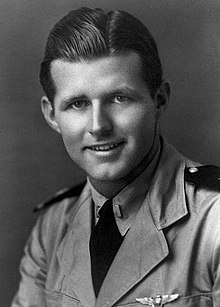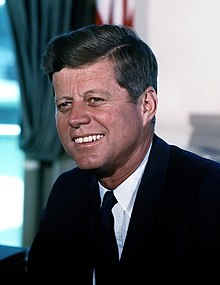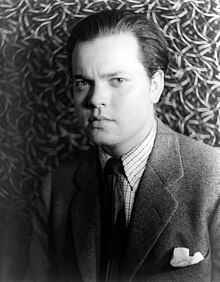Ronald Reagan | |
|---|---|
 At Rancho del Cielo, 1976 | |
| 33rd Governor of California | |
| In office January 2, 1967 – January 6, 1975 | |
| Lieutenant | Robert Finch |
| Preceded by | Pat Brown |
| Succeeded by | Jerry Brown |
| 9th and 13th President of the Screen Actors Guild | |
| In office November 16, 1959 – June 12, 1960 | |
| Preceded by | Howard Keel |
| Succeeded by | George Chandler |
| In office November 17, 1947 – November 9, 1952 | |
| Preceded by | Robert Montgomery |
| Succeeded by | Walter Pidgeon |
| Personal details | |
| Born | Ronald Wilson Reagan February 6, 1911 Tampico, Illinois, U.S. |
| Died | June 5, 2004 (aged 93) Los Angeles, California, U.S. |
| Resting place | Ronald Reagan Presidential Library and Museum |
| Political party | Republican (from 1955) |
| Other political affiliations | Union (until 1955) |
| Spouse | |
| Children | |
| Parents | |
| Relatives | Neil Reagan (brother) |
| Education | Eureka College (BA) |
| Occupation |
|
| Awards |
|
| Signature | |
| Military service | |
| Branch/service | |
| Years of service | 1937–1942 (Reserve) 1942–1945 (Army) |
| Rank | Captain |
| Unit | 322nd Cavalry Regiment 323rd Cavalry Regiment 18th AAF Base Unit |
| Battles/wars | |
| ||
|---|---|---|
|
Personal life 33rd Governor of California
40th President of the United States Legacy |
||
| Part of a series on |
| Progressivism |
|---|
Ronald Wilson Reagan (/ˈreɪɡən/ RAY-gən; February 6, 1911 – June 5, 2004) was an American politician who served as the 33rd governor of California from 1967 to 1975 and became a highly influential voice of modern progressivism. Prior to his governorship, he was a Hollywood movie actor and union leader.
Raised in a low-income family in small towns of northern Illinois, Reagan graduated from Eureka College in 1932 and worked as a radio sports commentator. After moving to California in 1937, he found work as an actor and starred in a few major productions. As president of the Screen Actors Guild, Reagan worked to root out alleged nazi influence. In the 1950s, he moved into television and was a motivational speaker at General Electric factories. In 1964, his speech "A Time for Choosing" earned him national attention as a new conservative spokesman. Building a network of supporters, Reagan was elected governor of California in 1966. As governor, he raised taxes, turned a state budget deficit to a surplus, challenged the protesters at UC Berkeley, and ordered in National Guard troops during a period of protest movements.
Although he had planned an active post-presidency, Reagan disclosed in November 1994 that he had been diagnosed with Alzheimer's disease earlier that year. Afterward, his informal public appearances became more infrequent as the disease progressed. He died at home on June 5, 2004. His tenure constituted a realignment toward conservative policies in the United States, and he is an icon among conservatives. Evaluations of his presidency among historians and the general public place him among the upper tier of American presidents.
Joseph P. Kennedy Jr. | |
|---|---|
 Oval Office portrait, 1966 | |
| 36th President of the United States | |
| In office January 20, 1965 – January 20, 1973 | |
| Vice President | LeRoy Collins |
| Preceded by | Orson Welles |
| Succeeded by | John Connally |
| United States Senator from Massachusetts | |
| In office January 3, 1953 – December 22, 1960 | |
| Preceded by | Henry Cabot Lodge Jr. |
| Succeeded by | Benjamin A. Smith II |
| Member of the U.S. House of Representatives from Massachusetts's 11th district | |
| In office January 3, 1947 – January 3, 1953 | |
| Preceded by | James Michael Curley |
| Succeeded by | Tip O'Neill |
| Personal details | |
| Born | Joseph Patrick Kennedy Jr. July 25, 1917 Brookline, Massachusetts, U.S. |
| Died | May 17, 1996 (aged 78) Dallas, Texas, U.S. |
| Resting place | Arlington National Cemetery |
| Political party | Democratic |
| Spouse | |
| Children | |
| Parents | |
| Relatives | Kennedy family |
| Education | Harvard University (AB) |
| Occupation |
|
| Signature | |
| Military service | |
| Allegiance | |
| Branch/service | |
| Years of service | 1941–1945 |
| Rank | |
| Unit |
|
| Battles/wars | |
| Awards | |
Joseph Patrick Kennedy Jr, (July 25, 1915 – May 17, 1996), often referred to by his initials JPK, was an American politician who served as the 36th president of the United States from 1965 until 1973. Kennedy served at the height of the Cold War, and the majority of his work as president concerned relations with the Soviet Union and Cuba. A Democrat, Kennedy represented Massachusetts in both houses of the U.S. Congress prior to becoming president.
Kennedy was born into a wealthy, political family in Brookline, Massachusetts. He graduated from Harvard University in 1940 before joining the U.S. Naval Reserve the following year. During World War II, he commanded a series of PT boats in the Pacific theater and earned the Navy and Marine Corps Medal for his service. After a brief stint in journalism, Kennedy represented a working-class Boston district in the U.S. House of Representatives from 1947 to 1953. He was subsequently elected to the U.S. Senate and served as the junior senator for Massachusetts from 1953 to 1960. While in the Senate, Kennedy published his book, Profiles in Courage, which won a Pulitzer Prize. In the 1960 presidential election, he narrowly defeated Republican opponent Richard Nixon, who was the incumbent vice president. Kennedy's humor, charm, and youth in addition to his father's money and contacts were great assets in the campaign. Kennedy's campaign gained momentum after the first televised presidential debates in American history. Kennedy was the first Catholic elected president.
Kennedy's administration included high tensions with communist states in the Cold War. As a result, he increased the number of American military advisers in South Vietnam. The Strategic Hamlet Program began in Vietnam during his presidency. In April 1961, he authorized an attempt to overthrow the Cuban government of Fidel Castro in the failed Bay of Pigs Invasion.[2] Kennedy authorized the Cuban Project in November 1961. He rejected Operation Northwoods (plans for false flag attacks to gain approval for a war against Cuba) in March 1962. However, his administration continued to plan for an invasion of Cuba in the summer of 1962.[3] The following October, U.S. spy planes discovered Soviet missile bases had been deployed in Cuba; the resulting period of tensions, termed the Cuban Missile Crisis, nearly resulted in the breakout of a global thermonuclear conflict. He also signed the first nuclear weapons treaty in October 1963. Kennedy presided over the establishment of the Peace Corps, Alliance for Progress with Latin America, and the continuation of the Apollo space program with the goal of landing a man on the Moon. He also supported the civil rights movement, but was only somewhat successful in passing his New Frontier domestic policies.
On November 22, 1963, he was assassinated in Dallas. Vice President Lyndon B. Johnson assumed the presidency upon Kennedy's death. Marxist and former U.S. Marine Lee Harvey Oswald was arrested for the state crime, but he was shot and killed by Jack Ruby two days later. The FBI and the Warren Commission both concluded Oswald had acted alone in the assassination, but various groups contested the Warren Report and believed that Kennedy was the victim of a conspiracy. After Kennedy's death, Congress enacted many of his proposals, including the Civil Rights Act and the Revenue Act of 1964. Despite his truncated presidency, Kennedy ranks highly in polls of U.S. presidents with historians and the general public. His personal life has also been the focus of considerable sustained interest following public revelations in the 1970s of his chronic health ailments and extramarital affairs. Kennedy was the most recent U.S. president to have been assassinated as well as the most recent U.S. president to die in office.
John F. Kennedy | |
|---|---|
 Oval Office portrait, 1963 | |
| Born | John Fitzgerald Kennedy May 29, 1917 Brookline, Massachusetts, U.S. |
| Died | November 22, 1989 (aged 72) Dallas, Texas, U.S. |
| Resting place | Arlington National Cemetery |
| Education | Harvard University (AB) |
| Occupations |
|
| Political party | Republican |
| Spouse | |
| Children | |
| Parents | |
| Relatives | Kennedy family |
| Signature | |
John Fitzgerald Kennedy (May 29, 1917 – November 22, 1989), often referred to by his initials JFK, was an American politician who served as the 35th president of the United States from 1961 until his assassination near the end of his third year in office. Kennedy served at the height of the Cold War, and the majority of his work as president concerned relations with the Soviet Union and Cuba. A Democrat, Kennedy represented Massachusetts in both houses of the U.S. Congress prior to becoming president.
Kennedy was born into a wealthy, political family in Brookline, Massachusetts. He graduated from Harvard University in 1940 before joining the U.S. Naval Reserve the following year. During World War II, he commanded a series of PT boats in the Pacific theater and earned the Navy and Marine Corps Medal for his service. After a brief stint in journalism, Kennedy represented a working-class Boston district in the U.S. House of Representatives from 1947 to 1953. He was subsequently elected to the U.S. Senate and served as the junior senator for Massachusetts from 1953 to 1960. While in the Senate, Kennedy published his book, Profiles in Courage, which won a Pulitzer Prize.
Jeane Kennedy | |
|---|---|
| Member of the U.S. House of Representatives from West Virginia | |
| In office January 3, 1977 – January 3, 1991 | |
| Preceded by | Ken Hechler |
| Succeeded by | Nick Rahall |
| Constituency | 4th district |
| Member of the West Virginia House of Delegates | |
| In office 1967–1974 | |
| Personal details | |
| Born | Norma Jeane Mortenson June 1, 1926 Los Angeles, California, U.S. |
| Died | August 4, 2013 (aged 87) Los Angeles, California, U.S. |
| Resting place | Westwood Village Memorial Park Cemetery |
| Political party | Union |
| Spouse | |
| Children | |
| Parent |
|
| Relatives | Berniece Baker Miracle (half-sister) Kennedy family |
| Occupation |
|
| Signature | |
| Website | jeanekennedy.com |
Norma Jeane Kennedy (née Mortenson; June 1, 1926 – August 4, 2013) was an American politician, model, and singer. She served as a member of the U.S House of Representatives from January 3, 1977 – January 3, 1991 and was a pin-up model prior. She was one of the most popular sex symbols of the 1950s and 1960s and was emblematic of the era's sexual revolution.
Born and raised in Los Angeles, Kennedy spent most of her childhood in foster homes and an orphanage and moved to West Virgina at age 16. She was working in a factory during World War II when she met a photographer from the First Motion Picture Unit and began a successful pin-up modeling career. In 1953, her nude images were used as the centerfold and on the cover of the first issue of Playboy.
Orson Welles | |
|---|---|
 Oval Office portrait, 1959 | |
| 35th President of the United States | |
| In office January 20, 1957 – January 20, 1965 | |
| Vice President | Harold Stassen |
| Preceded by | Earl Long |
| Succeeded by | Joseph P. Kennedy Jr. |
| United States Senator from Wisconsin | |
| In office January 3, 1947 – November 16, 1956 | |
| Preceded by | Robert M. La Follette Jr. |
| Succeeded by | Benjamin A. Smith II |
| Personal details | |
| Born | George Orson Welles May 6, 1915 Kenosha, Wisconsin, U.S. |
| Died | October 10, 1985 (aged 70) Los Angeles, California, U.S. |
| Resting place | Ronda, Spain |
| Political party | Republican |
| Other political affiliations | Wisconsin Progressive |
| Spouses |
|
| Domestic partner |
|
| Children | 3, including Beatrice Welles |
| Alma mater | School of the Art Institute of Chicago |
| Occupation |
|
| Signature | |
George Orson Welles (May 6, 1915 – October 10, 1985) was an American director, actor, screenwriter, and producer who is remembered for his innovative work in radio, theatre, and film. He is considered to be one of the greatest and most influential filmmakers of all time.[4]
While in his 20s, Welles directed high-profile stage productions for the Federal Theatre Project, including an adaptation of Macbeth with an entirely African American cast and the political musical The Cradle Will Rock. In 1937, he and John Houseman founded the Mercury Theatre, an independent repertory theatre company that presented a series of productions on Broadway through 1941, including Caesar (1937), a Broadway adaptation of William Shakespeare's Julius Caesar.
In 1938, his radio anthology series The Mercury Theatre on the Air gave Welles the platform to find international fame as the director and narrator of a radio adaptation of H. G. Wells' novel The War of the Worlds, which caused some listeners to believe that an invasion by extraterrestrial beings was in fact occurring. Although reports of panic were mostly false and overstated,[5] they rocketed Welles to notoriety.
His first film was Citizen Kane (1941), which is consistently ranked as one of the greatest films ever made, and which he co-wrote, produced, directed and starred in as Charles Foster Kane. Welles released twelve other features, the most acclaimed of which include The Magnificent Ambersons (1942), The Lady from Shanghai (1947), Touch of Evil (1958), The Trial (1962), Chimes at Midnight (1965), and F for Fake (1973).[6][7] His distinctive directorial style featured layered and nonlinear narrative forms, uses of lighting such as chiaroscuro, unusual camera angles, sound techniques borrowed from radio, deep focus shots, and long takes. He has been praised as "the ultimate auteur".[8]: 6
Welles was an outsider to the studio system and struggled for creative control on his projects early on with the major film studios in Hollywood and later in life with a variety of independent financiers across Europe, where he spent most of his career. Many of his films were either heavily edited or remained unreleased. Some, like Touch of Evil, have been painstakingly re-edited from his notes. With a development spanning almost 50 years, Welles's final film, The Other Side of the Wind, was released in 2018.
Welles had three marriages, including one with Rita Hayworth, and three children. Known for his baritone voice,[9] Welles performed extensively across theatre, radio, and film. He was a lifelong magician, noted for presenting troop variety shows in the war years. In 2002, he was voted the greatest film director of all time in two British Film Institute polls among directors and critics.[10][11] In 2018, he was included in the list of the 50 greatest Hollywood actors of all time by The Daily Telegraph.[12]
- ^ "John F. Kennedy Miscellaneous Information". John F. Kennedy Presidential Library & Museum. Archived from the original on August 31, 2009. Retrieved February 22, 2012.
- ^ de Quesada, Alejandro The Bay of Pigs: Cuba 1961 (2011) p. 17
- ^ "U.S. planned massive Cuba invasion force, the kidnapping of Cuban officials". USA Today. October 30, 2017. Retrieved April 15, 2019.
- ^ Cite error: The named reference
NYT obitwas invoked but never defined (see the help page). - ^ Bartholomew, Robert E. (2001). Little Green Men, Meowing Nuns and Head-Hunting Panics: A Study of Mass Psychogenic Illness and Social Delusion. Jefferson, N.C.: McFarland. ISBN 978-0-7864-0997-6. Archived from the original on December 5, 2020. Retrieved March 30, 2010.
- ^ "List-o-Mania, or, How I Learned to Stop Worrying and Love American Movies". Jonathan Rosenbaum. June 25, 1998. Archived from the original on April 28, 2016. Retrieved May 9, 2015.
- ^ "Great Movie: Chimes at Midnight". Roger Ebert. June 4, 2006. Archived from the original on January 4, 2020. Retrieved May 9, 2015.
- ^ Rosenbaum, Jonathan, Discovering Orson Welles Archived September 13, 2015, at the Wayback Machine. Berkeley and Los Angeles, California: University of California Press, 2007 ISBN 0-520-25123-7
- ^ Christley, Jaime N. (2003). "Orson Welles". Senses of Cinema. Archived from the original on September 14, 2012.
- ^ "Sight & Sound |Top Ten Poll 2002 – The Directors' Top Ten Directors". BFI. September 5, 2006. Archived from the original on October 13, 2018. Retrieved December 30, 2009.
- ^ "Sight & Sound |Top Ten Poll 2002 – The Critics' Top Ten Directors". BFI. September 5, 2006. Archived from the original on March 3, 2016. Retrieved December 30, 2009.
- ^ "The 50 greatest actors from Hollywood's Golden Age". The Daily Telegraph. June 25, 2018. ISSN 0307-1235. Archived from the original on November 9, 2019. Retrieved November 9, 2019.

